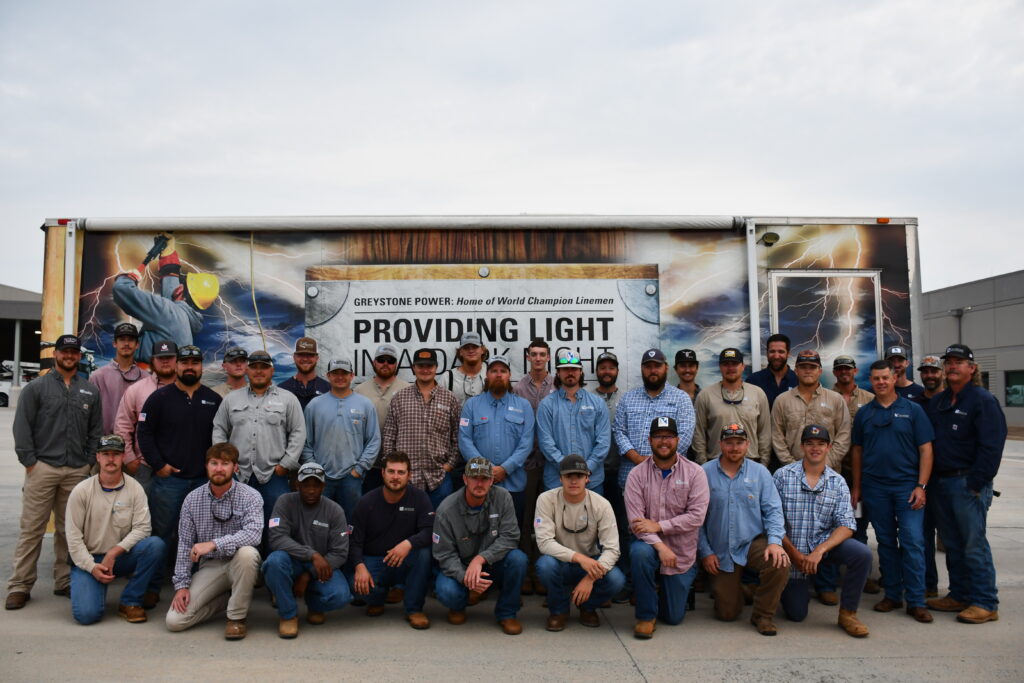
A partnership with a local career academy to foster new generations of lineworkers is bearing fruit for a Georgia electric cooperative, which has hired several graduates as first-year apprentices.
This past summer, GreyStone Power Corp. hired five alumni of the Energy Pathway program at nearby Paulding College and Career Academy (PCCA), bringing the total number of program hires to nine. The apprentices all successfully completed internships at the Hiram-based co-op.
“I help out the linemen and try to learn something new every day,” said Brady Austin, 20, a first-year apprentice, former summer intern and academy graduate. “In school, we learned about the hardware and pole specs and did a little bit of climbing. But I learned a lot more as an intern and thought it put me ahead.”
The co-op has worked extensively with career academies in local high schools to spark interest among young people in linework and other technical careers. The Energy Pathway program at PCCA launched in 2019, and the internship program began in 2022.
“We’ve tried to be very intentional about our engagement with those schools and their career academies so that we’re targeting local students who want to remain in the service territory,” said James Wright, vice president of corporate services at the co-op.
GreyStone Power has also teamed with the Cobb Innovation and Technology Academy, a magnet program at a local high school. This summer, two CITA juniors interned at the co-op, and “we’re hopeful they’ll come back again next summer and transition into full-time employment,” said Jarred Stevens, the co-op’s manager of operations.
The six-week internships “tell you so much about the people and their work ethic,” Stevens continued. “There’s no better testament than to have a GreyStone employee vouch for an applicant and say, ‘I worked with this person on our crew for the last six weeks, and I would definitely say this is someone we need to look at hiring.’”
GreyStone Power is addressing a major problem among all co-op linework crews: competition with contractors for the same pool of lineworkers. Between 2021 and 2023, lineworker departures were among the highest among all co-op job families, according to NRECA research—with 30%-35% turnover rates.
At the metro Atlanta co-op, 21 lineworkers left in 2022-23.
“It’s extremely difficult for an electric distribution cooperative to match the pay, per diems and benefits of contractors who can pass along their costs to an investor-owned utility,” Wright said. “Stability equals safety, and if you’ve got folks at the cooperative for a long period of time, they’ll understand our safety culture and practices.”
As Gen Zers are entering the workplace, the co-op has made extra efforts to recruit them and, once hired, maintain engagement with them. Recruitment materials, for example, tout the co-op’s educational reimbursement program, paid leave, on-campus training lab, and opportunities for leadership, advancement and employee input.
“It’s so important to us at GreyStone that our leaders can speak to a 50-year employee but also a 50-day employee,” Wright said of the co-op’s increasingly multigenerational workforce. “The way you lead, motivate and relate to those individuals can be completely different.”
Victoria A. Rocha is a staff writer for NRECA.